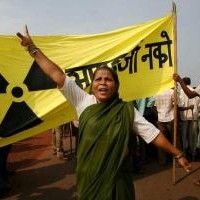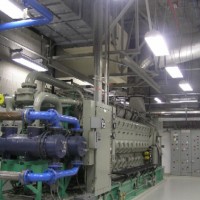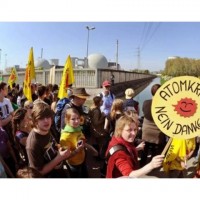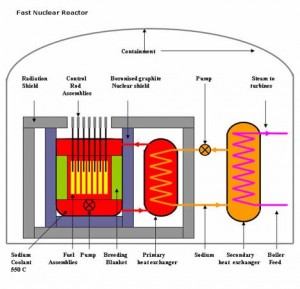Protests delay India's nuclear renaissance
Projects in Koodankulam and Jaitapur will be set back
By Dan Yurman
A series of protests that began in October have delayed the hot start of two Russian 1000- MW VVER reactors in the Tamil Nadu state on India's southernmost coastline. Additional protests, some of them violent, have set back the start of construction of two French 1650-MW EPR reactors in the Maharashtra state on India's west coast some 400 km (250 miles) south of Mumbai.
In Koodankulam in Tamil Nadu, the provincial governor has supported protests by local villagers over perceived safety issues following the Fukushima crisis in Japan and also focused on the hot water discharge from the plant into shoreline fishing waters. In Jaitapur, area villagers have complained about what they say is inadequate compensation for land to be taken for the plant and displacement of their farms without having a new way to make a living.
In both locations, minority political parties have made common cause with the protesting villagers. The national government, however, has charged that anti-nuclear organizers from Greenpeace have been seen in Tamil Nadu.
Hot start-up stopped
The net effect of the protests is that all work has stopped on hot startup of the two Russian VVERs. Both reactors were to have entered revenue service in December 2011. Now the Nuclear Power Corp. of India Ltd. (NPCIL) says that the startup will be postponed to March 2012. At Jaitapur, the commissioning date for the first of two Areva EPRs has been set back by at least a year, to 2019.
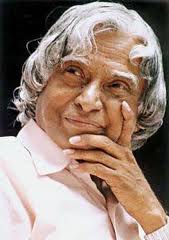
A.P.J. Abdul Kalam, who is the Indian government spokesman for dealing with protests over construction of new nuclear reactors at Koondankulam.
The national government has been caught by surprise by the protests. In early November, it engaged former President A.P.J. Abdul Kalam, who is from Tamil Nadu and is a former defense official, to meet with the provincial governor and representatives of protest groups. Kalam toured the Russian built plant site and pronounced it safe, much to the disappointment of the protest groups.
The chairman of India's Atomic Energy Commission, Srikumar Banerjee, said that the local protests would not be resolved with scientific facts. He said that one-on-one contacts between nuclear officials and the villagers were needed to calm everyone down.
Whatever gains might have been derived from the confidence building effort from Kalam's public relations tour were dashed, however, when India's Atomic Energy Regulatory Board called for additional safety measures for the two reactors.
The agency head, Shri S.S. Bajaj, said that based on review of events that took place at Fukushima last March, the board wants the two VVERs to have a better system to deal with loss of external electrical power and a larger supply of fresh water for emergency cooling.
While this announcement might have provided new political fuel for the protests, the NPCIL plant project manager, Kashinath Balaji, said that it was a no brainer to acquire more emergency diesel generators and to arrange for more fresh water supplies.
Meanwhile, the lead Russian engineer at the plant said that the protests would require some of the commissioning work to be redone. Kvasa Alexander told NDTV (video) on November 13 that the water in the core was now stagnant and would have to be replaced and that all the electrical circuits and pipe valves would have to be checked to make sure that they are in the right configuration. Also, he complained that Indian technicians who were working on the plant had gone home and refused to return until the protests ended. Update 11/17/11: Mr. Kvasa clarifies some of the media coverage in a comment below.
What we have here is a failure to communicate
Another element that has roiled protestors in Tamil Nadu is an evacuation drill that was perceived as a real emergency. The Indian Express newspaper reported on October 29 that the drill produced panic among the locals because they heard sirens and saw plant personnel streaming out of the site. Apparently, it never occurred to the Russians to consult with local authorities before running the drill.
NPCIL Chief S.K. Jain said that the uproar on October 29 was made worse by foreign nationals who were stirring up trouble. He told the Indian Express newspaper that "greens from the U.S., Finland, France, Australia, and Germany are backing the local protests."
And in Jaitapur, a senior provincial government official, Prithviraj Chevan, told the newspaper that "foreign powers," including people from Greenpeace in Finland, were working with local protest groups. For their part, the protest groups at both Jaitapur and Kudankalm denied the allegations.
Pro-and-con views of India's nuclear future
The former chief of India's Bhabha Atomic Research Center (BARC), Anil Kalodkar, said on November 13 that the government and the media "were reading too much into the situation at Koodankulam."
He went on to observe that the Russian reactors are safe and are a victim of "hysteria" related to Fukushima.
And there's more commentary from India's nuclear establishment. Annaswamy Prasad, the former head of BARC, told the blog of the science journal Nature on October 6 that India should halt all imports of foreign reactor technology and build out 60 GWe of electrical generating capacity with an indigenous design, a 700-MW PHWR based on AECL's CANDU design.
He also called for speeding up development of fast breeder reactors to make nuclear fuel and to convert thorium into U-233.
This development, he said, would eliminate the need for India to be dependent on world supplies of uranium. Russia is working with India to develop a fast reactor that uses the thorium fuel cycle.
This provoked a response from Subhas Sukhatme, the former chairman of the Atomic Energy Regulatory Board, that this vision, and a parallel call for more investment in renewable energy, was an unrealistic path.
In the end it is likely that both the Russian reactors at Koodankulam and the French units at Jaitapur will be built. C. Uday Bhaskar, a New Dehli energy security expert, told the Bloomberg wire service that while some delays "are inevitable" due to the protests, "India cannot afford to abandon its nuclear energy program."
He added that "neither can it afford to ignore the public mood."
-----------
Dan Yurman publishes Idaho Samizdat, a blog about nuclear energy and is a frequent contributor to ANS Nuclear Cafe


